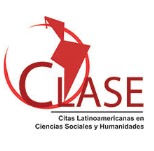O BULLYING COMO UM FENÔMENO SOCIAL-RELACIONAL. SÓ ESTAMOS BEM SE ESTIVERMOS TODOS BEM
Keywords:
assédio escolar, comunidades colaborativas de aprendizagem, psicologia positiva, construcionismo social, terapias construtivas escolares.Abstract
Tendo como base as práticas colaborativas e ideias de construção social, bem como pesquisas em psicologia positiva e terapias construcionistas, nosso trabalho como consultoras escolares promove a criação de comunidades de aprendizagem onde todos os membros são incluídos, aceitos e valorizados. Neste artigo, compartilhamos nossas experiências em trabalhar com as escolas em resposta à necessidade de abordar a questão do bullying ou assédio escolar. Apresentamos as ideias que professores e profissionais de educação têm considerado mais úteis, tanto na vida profissional como na vida pessoal.Downloads
References
Andersen, T. (1995). Reflecting processes; acts of informing and forming: you can borrow myeyes but you can’t take them away from me. In S. Friedman (Ed.), The reflecting team inaction: collaborative practice in family therapy (pp. 11-37). New York: Guilford.
Anderson, H. (1997). Conversation, Language and Possibilities: A Postmodern approach to Therapy. New York: BasicBooks.
Anderson, H. (1998). Collaborative learning communities. In. S. McNamee & K. J. Gergen (Eds.), Relational responsibility (pp. 65-70). Newbury Park, CA.: Sage Publications.
Anderson, H. (2000). Supervision as a collaborative learning community. American Associationfor Marriage and Family Therapy Supervision Bulletin. Fall, 2000, 7-10.
Anderson, H. (2009). Collaborative practice: Relationships and conversations that make a difference. In J. Bray & M. Stanton (Eds.), The Wiley Handbook of Family Psychology (pp. 300-313). Malden, MA: Blackwell Publishing.
Anderson, H. & Gehart, D. (2007). Collaborative Therapy: Relationships and Conversations that make a difference. New York, Routledge Taylor and Francis Group.
Anderson, H. & Swim, S. (1993). Learning as collaborative conversation: Combining thestudent’s and the teacher’s expertise. Human systems: The journal of systemicconsultation and management. 4, 145-160.
Anderson, H. & Swim, S. (1995). Supervision as collaborative conversation: Connecting thevoices of supervisor and supervisee. Journal of Systemic Therapies, 14(2), 1-13.
Bateson, G. (1972). Steps to an ecology of the mind: a revolutionary approach to man’sunderstanding of himself. New York: Ballantine Books.
Dodge, K., Coie, J. D., Pettit, G. S., & Price, J. M. (1990). Peer status and aggression in boys in Groups: Developmental and Contextual Analyses. Child Development, 61, 1289-1309.
Fernandez, E., London, S., & Rodriguez-Jazcilevich, I. (2006). Learning/teaching postmodern ideasin three different settings. Journal of Systemic Therapies, 25(4), 32-43.
London, S. & I. Rodríguez J. (2001). La Supervisión como Grupo de Conversaciones Colaborativas. In G. Licea, I. Paquentín, & H. Selicoff (Eds.), Voces y más Voces II: Reflexiones sobre la supervisión (pp. 81-90). México: Alinde.
O’Hanlon, W. & Weiner Davis, M. (1990). En busca de soluciones: un nuevo enfoque en psicoterapia. Buenos Aires: Paidos.
Olewus, D. (1977). Aggression and peer acceptance in adolescent boys: Two short- term longitudinal studies of ratings. Child Development, 48, 1301-1313.
Olewus, D. (1993). Bullyimg at schools: what we know and what we can do. Oxford: Blackwell Publishers.
Seligman, M. (2002). Authentic happiness: using the new positive psychology to realize your potential for lasting fulfillment. New York: Free Press.
Thompson, M., Cohen, L., & O’Neill-Grace, C. (2003). Mamá me están molestando: como enseñarle a los niños a resolver conflictos interpersonales. Bogotá: Norma.
White, M & Epston, D. (1993). Medios narrativos para fines terapêuticos. Barcelona, Paidos.
Downloads
Published
How to Cite
Issue
Section
License
Autores que publicam nesta revista concordam com os seguintes termos:- Autores mantém os direitos autorais e concedem à revista o direito de primeira publicação, com o trabalho licenciado simultaneamente sob uma Licença Creative Commons Attribution após a publicação, permitindo o compartilhamento do trabalho com reconhecimento da autoria do trabalho e publicação inicial nesta revista.
- Autores têm autorização para assumir contratos adicionais separadamente, para distribuição não-exclusiva da versão do trabalho publicada nesta revista (ex.: publicar em repositório institucional ou como capítulo de livro), com reconhecimento de autoria e publicação inicial nesta revista.
- Autores têm permissão e são estimulados a publicar e distribuir seu trabalho online (ex.: em repositórios institucionais ou na sua página pessoal) a qualquer ponto antes ou durante o processo editorial, já que isso pode gerar alterações produtivas, bem como aumentar o impacto e a citação do trabalho publicado (Veja O Efeito do Acesso Livre).

















